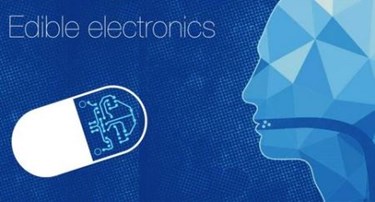CMU Researcher: "Smart Pills" Will Make Medications More Efficient, Cost-Effective

The U.S. Food and Drug Administration (FDA) recently accepted an application for what could be the first digital medication marketed in the U.S. According to a biomedical engineer at Carnegie Mellon University (CMU), the proliferation of similar technology will hinge upon the development of safe and effective ingestible batteries and circuitry. His evidence suggests that the next generation of “smart pills” will make medications more efficient and cost-effective.
Christopher Bettinger, an associate professor of materials science and biomedical engineering, published an article in Trends in Biotechnology that presented his vision for the future of digital medicine. In it, Bettinger states that the know-how to create smarter and more efficient medications already exists, but scientists are still investigating the safest materials to use in their construction.
“The primary risk is the intrinsic toxicity of these materials, for example, if the battery gets mechanically lodged in the gastrointestinal tract — but that’s a known risk. In fact, there is very little unknown risk in these kinds of devices,” said Bettinger in a press release.
Bettinger and his team at CMU, who have been studying various possibilities, noted that silicon is the best option for circuitry, as it is capable of sophisticated function while being completely biocompatible. Their next obstacle was to devise novel methods of powering the sensors, and their research suggested that minerals present in a healthy human diet — copper, manganese, and magnesium — may fit the bill for the other digital components.
Right now, the team has developed a battery with an open design, so that gastrointestinal fluids may flow through it and transport current. This battery’s cathode is made out of melanin, a mineral that pigments human hair and skin, and the anode is made out of manganese oxide, which is present in human nerve function. In lab tests, the battery provided 5 milliwatts of power for up to 20 hours.
“The breakfast you ate this morning is only in your GI tract for about 20 hours,” Bettinger commented. “All you need is a battery that can do its job for 20 hours and then, if anything happens, it can just degrade away.”
In an interview with IEEE Spectrum, Bettinger said that ideally he’d like to go to the FDA with a list of materials already present and permitted in human food. “We think we can go to the FDA and say, ‘here’s a battery compound of things that are already in our bodies, plus water.”
Bettinger believes that incorporating “smart” features into medications already in use could dramatically improve their performance. In the study, he explained that humans take so many pills because so little of the drug reaches its intended target. With a smarter medication, patients ostensibly could consume fewer pills.
“If we can engineer devices that get the most mileage out of existing drugs, then that is a very attractive value proposition,” said Bettinger, who added evidence of a drug’s increased efficiency may accelerate regulatory approval and clinical translation.
In his article’s conclusion, Bettinger noted, “The potential impact of ingestible electronics will expand as more materials are added to the design tool box.”
